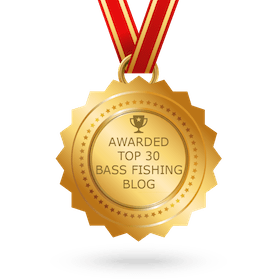Recreational fishing is one of America’s favorite outdoor activities. It is enjoyed by over 40 million Americans each year and participation has increased nationally since the mid-2000s. In surveys of the general population, recreational fishing is viewed very favorably with approval ratings over 90 percent. There aren’t many things that 90 percent of Americans agree upon, but recreational fishing being a positive, beneficial activity is one of them.
Despite the overall positive perception of recreational fishing and recent growth in participation, there are many challenges that we as a community must be prepared to meet. Here are some of the top issues that have emerged recently that we at KeepAmericaFishing believe will be major attention-getters in 2015.
Sportfishing Industry Anticipates New Sportsmen’s Act Introduction
Our staff, along with our partner organizations, has been working to support introduction of a Sportsmen’s Act in the new Congress that will address many of the sportfishing community’s top legislative priorities. After Congress failed in the last two sessions to move forward with a bipartisan Sportsmen’s Act, we are optimistic about our chances for success this year. Some of the key issues we hope to see addressed include the National Fish Habitat Conservation Act, preventing federal bans on lead fishing tackle, improved public access to federal lands and a solution to the failed management of Gulf of Mexico Red Snapper. As this issue progresses, KeepAmericaFishing will provide updates and opportunities to voice support for this monumental package.
Reauthorization of the Magnuson-Stevens Act
Congress is revising the Magnuson-Stevens Fisheries Conservation and Management Act (Magnuson-Stevens Act), the law that governs our nation’s marine resources. While the Magnuson-Stevens Act has produced many advances in the sustainability of US marine fish stocks, it has never been adapted to meet the needs of the recreational fishing community. This has resulted in many poor management decisions that have unnecessarily limited seasons and taken anglers off the water (see Gulf red snapper, below).
In early 2014, the Commission on Saltwater Recreational Fisheries Management, chaired by Bass Pro Shops founder and CEO John Morris and Maverick Boats President Scott Deal, released A Vision for Managing America’s Saltwater Recreational Fisheries. This landmark report identifies six key policies that would conserve marine fisheries resources while supporting the full range of saltwater recreational fishing’s economic, social, and conservation benefits. The commission’s priorities are supported by members of Congress and were included in draft Magnuson-Stevens reauthorization bills during the last Congress. Full reauthorization is expected during the new Congress, so the recreational fishing community must be alert and continue to make our voices heard.
Ban on Soft Lures
Thanks in large part to stiff opposition from anglers and the fishing industry, Maine decided not to ban soft plastic lures in 2014. Maine’s Department of Inland Fisheries and Wildlife studied the issue and concluded that a ban on soft plastic lures wasn’t warranted, and the state’s legislature adopted those findings. Despite this significant achievement, it is anticipated that legislative proposals to restrict or ban soft baits will reemerge in 2015. We are preparing to engage with the Maine legislature to stop any bills restricting soft baits, as well as launching a proactive campaign called “Pledge to Pitch It” to educate anglers on proper disposal of worn out or unwanted soft baits. Click Here to learn more about the Pledge to Pitch It and sign the petition.
Reauthorization of the Sport Fish Restoration Fund
While the Sport Fish Restoration and Boating Trust Fund itself is certainly not new, having existed since 1950, the program needs to be reauthorized in 2015 as part of the highway and transportation bill. The trust fund, which is primarily comprised of the taxes on fishing tackle and motorboat fuel, provides hundreds of millions of dollars annually to aquatic resource conservation and public access to our nation’s waterways. Without this program, recreational fishing opportunities across the country would suffer dramatically. Given shrinking federal budgets and appropriators looking to siphon from other revenue sources, the recreational fishing community must be diligent to ensure the trust fund is not weakened in any way during the reauthorization process.
Conclusion
As we look ahead to 2015 and beyond, the recreational fishing community must continue to be active and engaged to address the increasing number of legislative and policy issues we will face. KeepAmericaFishing is one of the most powerful tools the sportfishing industry has to ensure a vibrant future. By providing anglers with a voice when important issues that affect recreational fishing arise, KeepAmericaFishing has played an active role in many significant achievements to improve recreational fishing access and fisheries conservation. With the continued help and support of the entire recreational fishing community, we can bring about more and greater policy victories in 2015.
![]()











